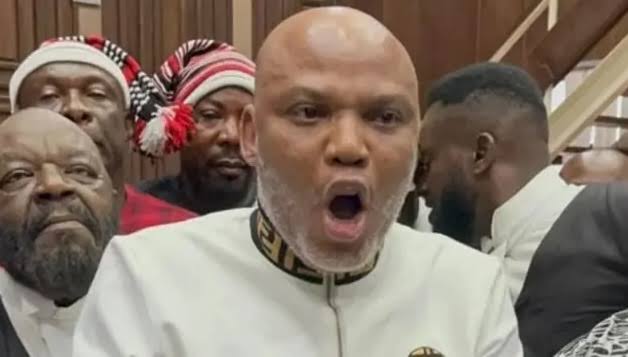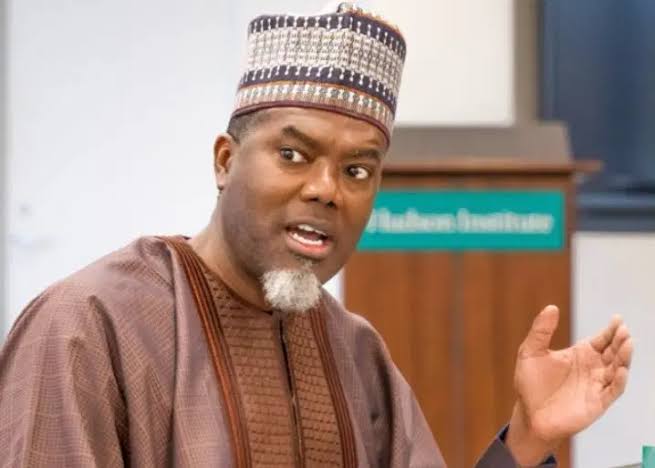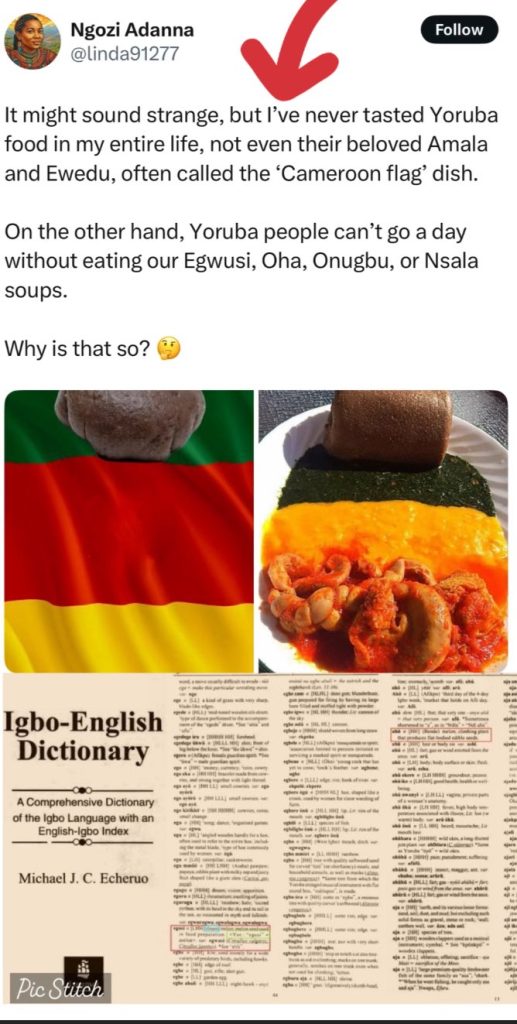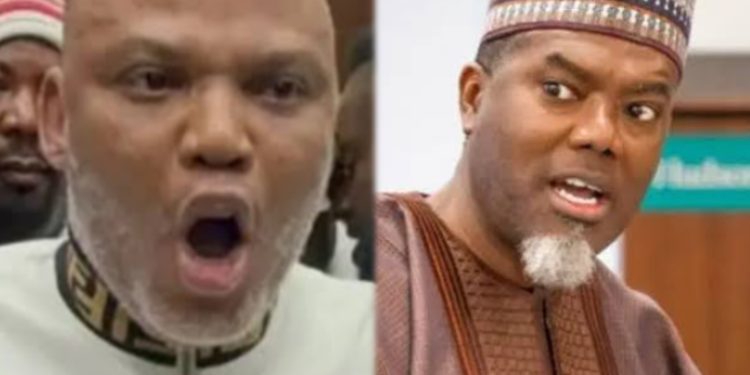A legal storm is brewing in Nigeria as the leader of the Indigenous People of Biafra (IPOB), Nnamdi Kanu, has reportedly filed a lawsuit against former presidential aide and social media commentator, Reno Omokri, demanding a staggering ₦60 billion in damages. While details surrounding the lawsuit remain somewhat sparse, the sheer magnitude of the demand and the prominent personalities involved have ignited a firestorm of discussions and speculations across the nation.

The news, though yet to be officially confirmed by either party through formal statements or court documents readily available in the public domain, has been circulating widely through various online platforms and social media channels. Sources close to Kanu’s legal team reportedly indicate that the lawsuit stems from a series of alleged defamatory statements and publications made by Reno Omokri against Nnamdi Kanu and the IPOB movement.
Reno Omokri, known for his vocal and often critical commentary on Nigerian politics and current affairs, has in the past expressed strong opinions regarding IPOB and its activities. It is believed that specific statements or publications by Omokri have been deemed by Kanu and his legal team as slanderous, injurious to his reputation, and detrimental to the IPOB cause.
ALSO READ: https://nationscuriosity.com/peter-obi-warns-nigerias-debt-could-skyrocke/
The exact nature of these alleged defamatory statements remains a key point of contention. However, given the history of public discourse surrounding IPOB, it is likely that the statements in question relate to Omokri’s criticisms of the group’s methods, its secessionist agenda, or potentially allegations of violence and incitement associated with the movement.

Nnamdi Kanu, a prominent figure in the Nigerian sociopolitical landscape, has been at the forefront of the agitation for the independent state of Biafra. His leadership of IPOB has garnered a significant following, particularly among the Igbo population in southeastern Nigeria. However, his activities have also drawn considerable controversy and legal battles with the Nigerian government, including charges of treason and terrorism.
Reno Omokri, on the other hand, has established himself as a vocal critic of the current administration and a staunch supporter of the previous government. Through his numerous social media posts, articles, and books, he frequently engages in political commentary, often sparking debates and generating significant public reactions.
The reported ₦60 billion demand for damages is an eye-watering figure, even within the context of high-profile defamation lawsuits. Such a substantial claim suggests that Kanu and his legal team believe the alleged defamation has caused irreparable harm to his reputation and the IPOB movement. Legal experts suggest that for such a claim to be successful, Kanu’s legal team would need to provide compelling evidence of the defamatory nature of Omokri’s statements, demonstrate the extent of the damage caused, and justify the massive financial demand.
Conversely, Reno Omokri is expected to vigorously defend himself against these allegations. His defense is likely to center on the principles of free speech and the right to express opinions on matters of public interest. He may argue that his statements were based on publicly available information and were made in good faith, without malicious intent to harm Kanu or IPOB.

The lawsuit, if indeed formally filed and pursued, promises to be a protracted and closely watched legal battle. It touches upon several sensitive issues, including freedom of speech, the right to reputation, and the complexities surrounding separatist movements in Nigeria. The outcome of this case could have significant implications for the boundaries of public discourse and the legal recourse available to individuals and groups who believe they have been defamed.
Furthermore, the case is likely to further inflame the already tense political climate in Nigeria. Supporters of Nnamdi Kanu and IPOB are likely to view the lawsuit as a necessary step to protect their leader and the integrity of their movement from what they perceive as malicious attacks. On the other hand, those critical of Kanu and IPOB may see the lawsuit as an attempt to stifle legitimate criticism and dissent.
As of now, both Nnamdi Kanu and Reno Omokri have remained publicly silent on the reported lawsuit. Their official responses, when they come, will undoubtedly shed more light on the specifics of the allegations and the anticipated legal strategies.
In conclusion, the reported lawsuit by Nnamdi Kanu against Reno Omokri, demanding ₦60 billion in damages, has the potential to become a landmark case in Nigerian legal and political history. While official confirmation is still awaited, the news has already triggered widespread discussion and speculation. The battle in the courtroom, if it materializes, will not only determine the fate of this specific legal dispute but also contribute to the ongoing debates about freedom of expression, the limits of public criticism, and the complex dynamics of Nigeria’s sociopolitical landscape. The nation awaits further developments with bated breath.


